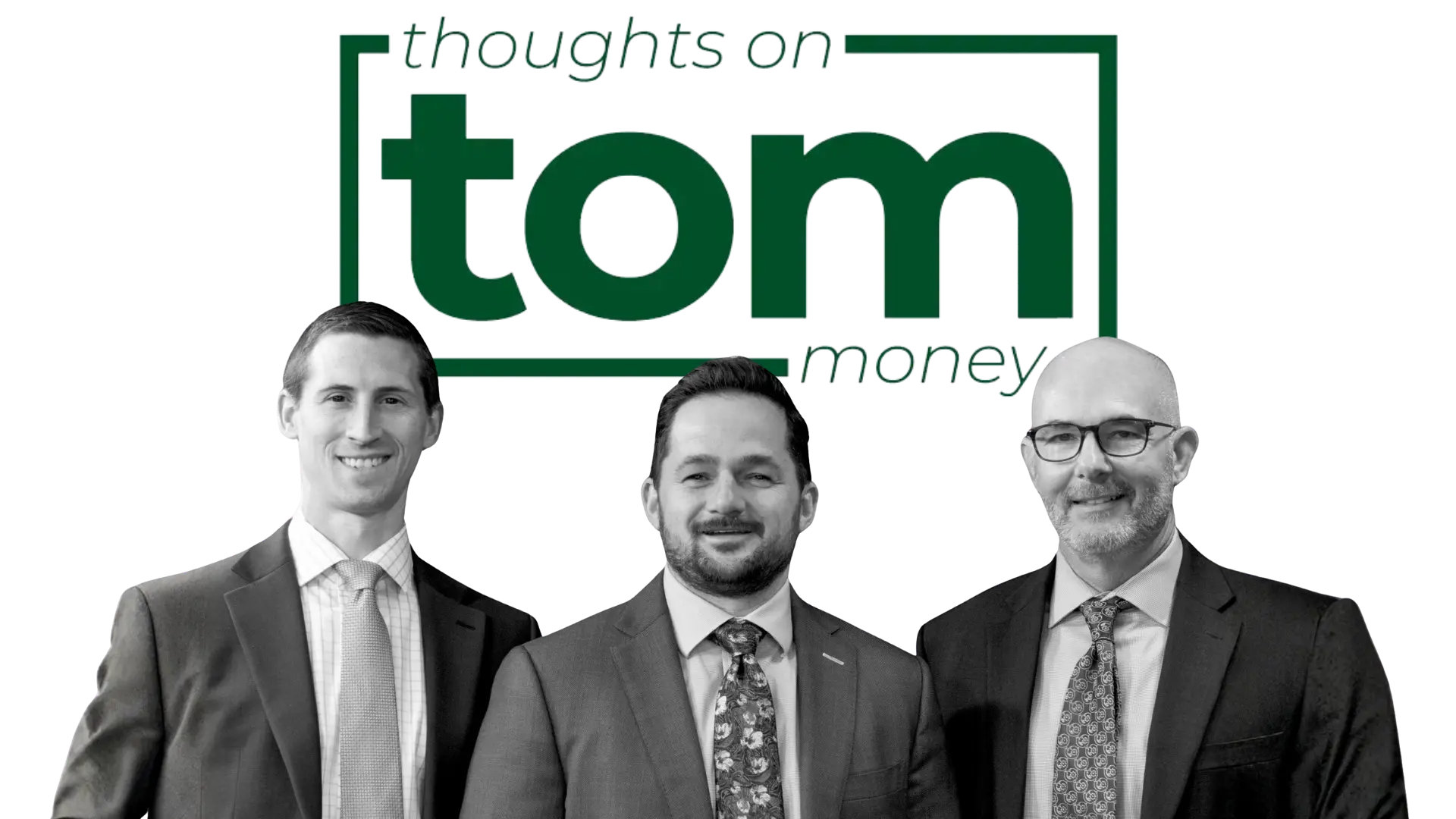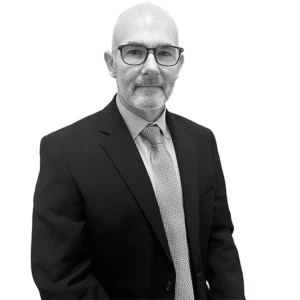Pontius Pilate
Often, some of the most thought-provoking questions in life are those that go unanswered. In the 18th chapter of The Gospel According to John, we find a conflicted Pontius Pilate. A man of great authority and power placed in an unenviable position of convicting Jesus of Nazareth. At the end of this dialogue between Jesus and Pilate, an emphatic and unanswered question is posed by Pilate, “What is truth?”
Fear & Faith
Many years ago, I was asked by an old boss to read this short book on leadership. The book came off a bit simplistic, but there was one claim that has always stuck with me. The author, Jon Gordon, submits this wisdom, “Fear and faith have one thing in common – they both believe in a future that hasn’t happened.” For all of us, the future is undetermined and unknown. We are left with a choice to either place hope or dread in our imagination of that future.
Truth, faith, fear, and the future are the subject matter for my Thoughts on Money today.
Misplaced Faith
History has innumerable accounts of tragedy that were incited in the name of faith. The losses on November 18, 1978, in Jonestown will live in infamy, as 918 lives were swept away in a mass suicide. September 11, 2001, carries the slogan “Never Forget,” as we will always mourn the tragedy of that day. At the risk of setting a somber tone, I share these memories to simply point out that faith can exist in the absence of truth. People can feel convinced and in faith, execute tragic acts.
Misplaced Fear
On a lighter note, there has been a common question posed by my 3-year-old son recently. He’s seeking confirmation and asking, “Daddy, monsters aren’t real, right?” I can hear a slight fear and trembling in his inquiry, but I know he just wants a little reaffirmation on this stressful topic. Why? Because fear can exist in the absence of truth. Fear, just like faith, is not dependent on truth.
The Future
So, as investors, what can we learn from these terrorists and toddlers? We can learn how easy it is to misplace our faith and/or fear. We understand, as an outsider looking in, the importance of anchoring our beliefs about the future in truth.
The entire industry of financial planning exists because people are uneasy about the uncertainty of the future. Investors want a plan, a strategy, an approach that can help provide some clarity. Investors want to make reasonable assumptions, represented by historical precedent, to provide a reliable forecast about their financial future. This is at the core and foundation of the planning craft.
What is Truth?
Yet, again, when we are talking futures we also understand how misguided the human brain and emotions can get. As an author of a personal finance commentary, I submit to you that the best thing I can offer you as a reader is to teach you how to think. With that said, I’d like to lead you back to the introduction of today’s discussion – Pontius Pilate’s famed query, what is truth? This is your mission as an investor, this is your journey, to determine what truth is and build your plan from that foundation.
The Attributes of Truth
So, what does truth look like? Truth is aged, or as my friend used to say, “If it’s true, it’s not new, and if it’s new, it’s not true.” Maybe a paraphrase of Spurgeon’s famed quote, “I cannot agree with those who say that they have “new truth” to teach. The two words seem to me to contradict each other; that which is new is not true. It is the old that is true, for truth is as old as God Himself.” So, if you stumbled across what may look like a finance truth, ask yourself if this truth is steeped in history – has the concept passed the test of time?
Truth is understandable. Truth can be robust, truth can be thought provoking, truth can be meditated on, but truth should not be clothed in so much complexity that it is inexplainable. I love this quote from Oliver Wendell Holmes, “For the simplicity on this side of complexity, I wouldn’t give you a fig. But for the simplicity on the other side of complexity, for that, I would give you anything I have.” Truth and wisdom should have this beautiful simplicity about them. I can’t tell you how many investors I’ve met that can’t regurgitate the basic tenets of the strategy they’re deploying. Take a page out of Warren Buffett’s book, “Charlie [Munger] says we have three boxes: “In,” “Out” and “Too hard.” You don’t have to do everything well. At the Olympics if you run the 100 meters well, you don’t have to do the shot put…”. Let me help you out, “Too Hard” is a euphemism for a bad idea.
Truth should be agreed upon. Sure, not everyone will agree, but be careful if you find yourself as the ONLY person in the universe with a particular perspective. It’s ok to be in the minority, it’s not ok to believe something that absolutely no one else agrees with. Truth should be tested and dialogued amongst wise counsel, and it should be affirmed by more than just you.
Truth should not feel like a conspiracy. If it feels like a conspiracy then be careful, be critical, and be objective. The adoption of conspiracy theories has caused more financial damage throughout history than you’d probably believe.
And the List Goes on…
These are just some of the attributes of truth, but the list obviously expands further than what we will explore in today’s discussion.
The bottom line is this: your faith should be married to the truth. Your fears should be steeped in truth as well. For your fears, they should be calmed via planning. Risks/fears that are too unwieldy should be mitigated with insurance or other solutions.
Again, financial planning is an exercise that seeks to define the future. Planning should relieve anxiety; planning should instill hope. BUT planning needs to be matched with an investment strategy based on truth. Not a conspiracy strategy, not a fad, not a gimmick, but rather a mature, thoughtful, truth-bearing approach to investment management.
Knowing that faith and fear can exist in the absence of truth and that our future relies on truth should motivate us that much more to slow down, reflect, and seek truth. I’ll leave you with this quote from Mark Twain, “It’s not what we don’t know that gets us in trouble. It’s what we know for sure that just ain’t so.”






